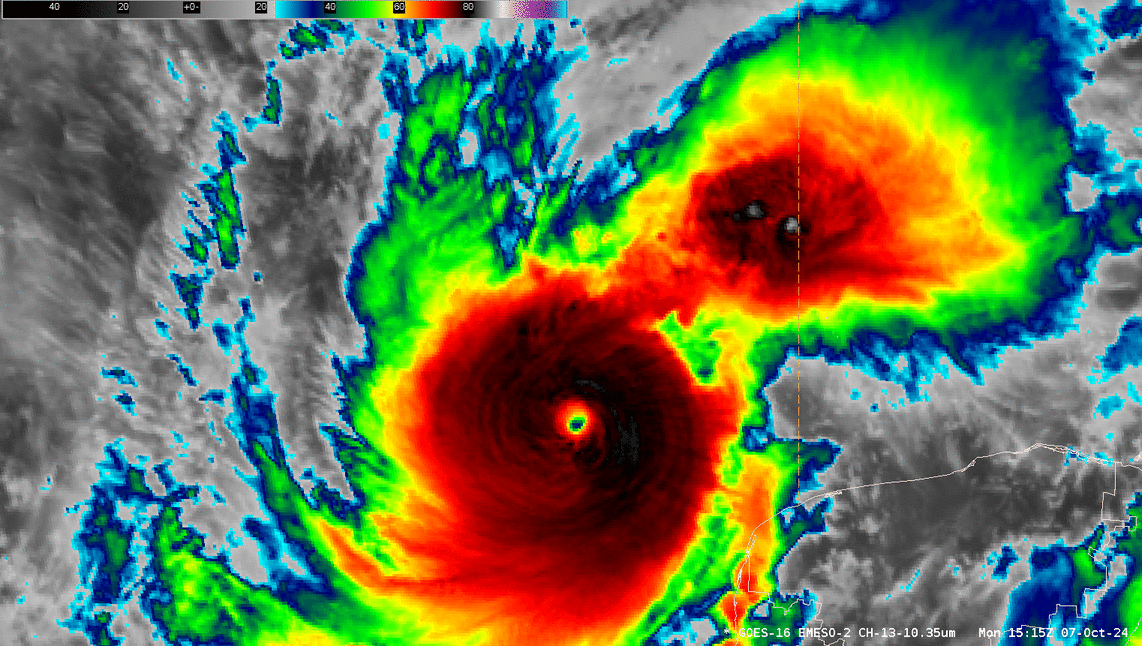
Satellite Liaison Captures Hurricane Activity
Chris Smith, ESSIC/CISESS Faculty Assistant, has been posting updates on hurricane activity on the Satellite Liaison Blog, a blog for scientists to demonstrate how satellite

Chris Smith, ESSIC/CISESS Faculty Assistant, has been posting updates on hurricane activity on the Satellite Liaison Blog, a blog for scientists to demonstrate how satellite
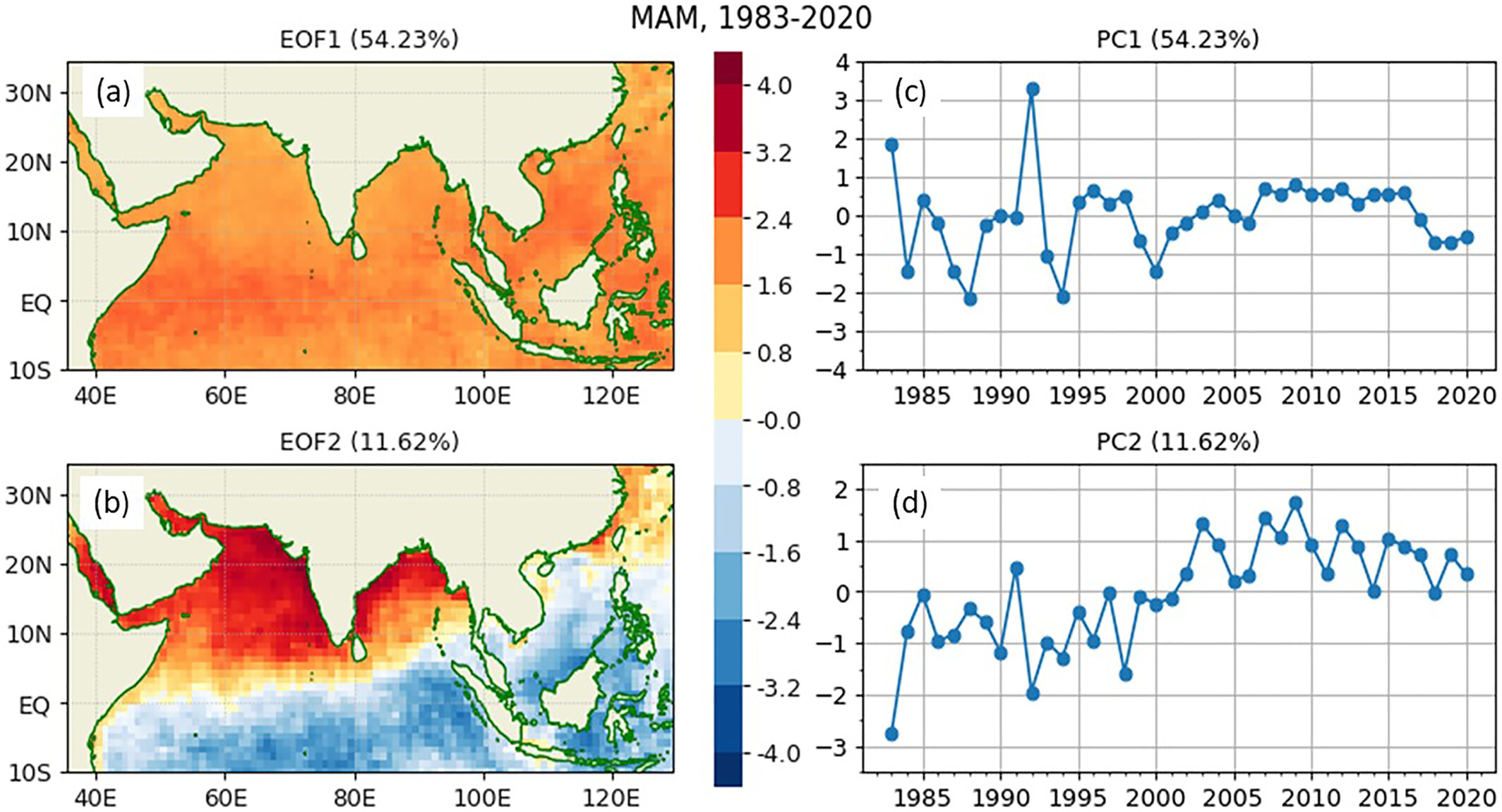
Figure 1: The leading spatial patterns (left panels) and the principal component (PC) time series (right panels) of Empirical Orthogonal Function (EOF) analysis on the
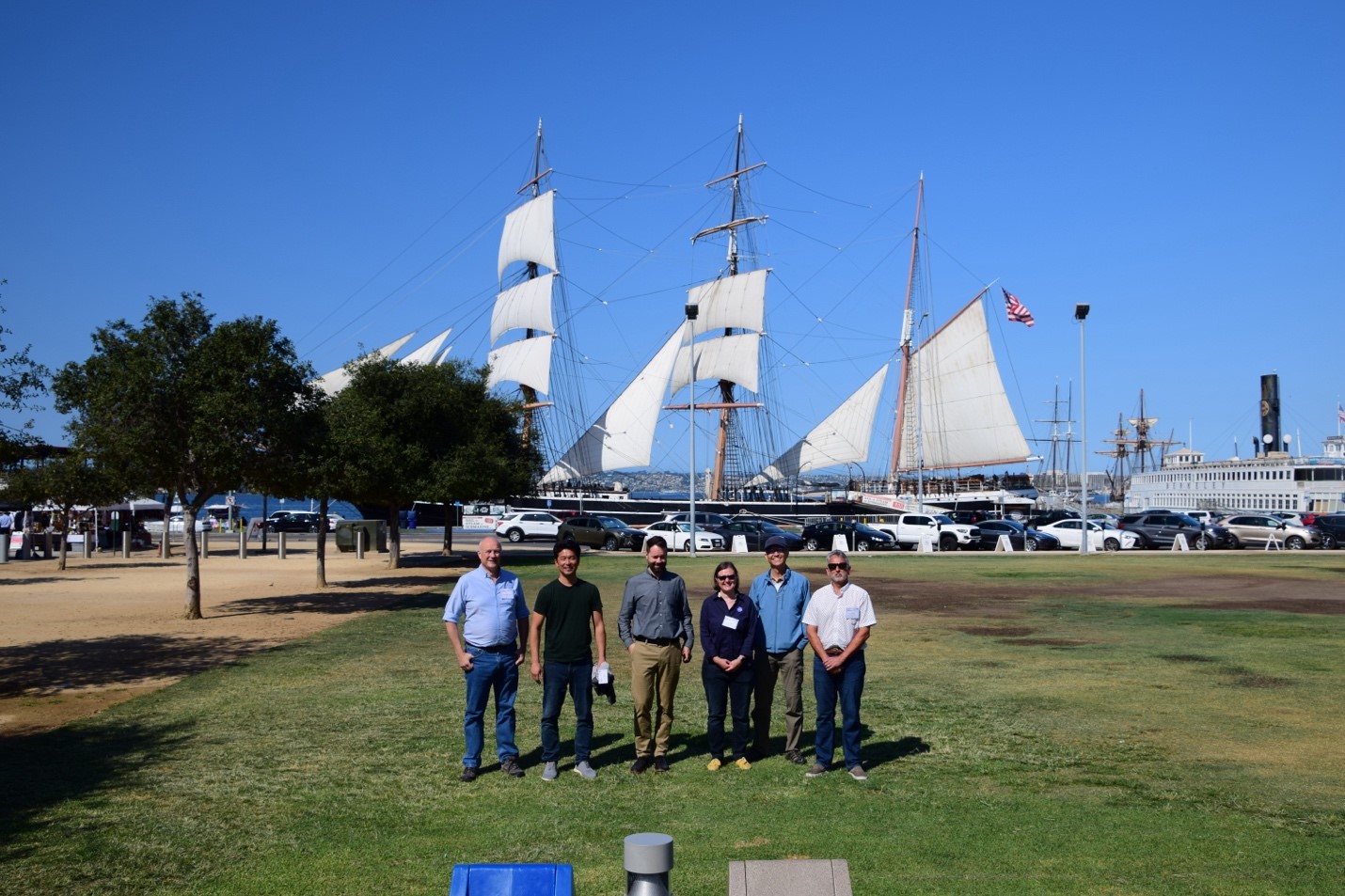
Figure 1- Chris Kidd, Toshi Matsui, Veljko Petkovic, Lisa Milani, Kwo-Sen Kuo, Ralph Ferraro ESSIC scientists participated at the annual meeting of the PMM Science
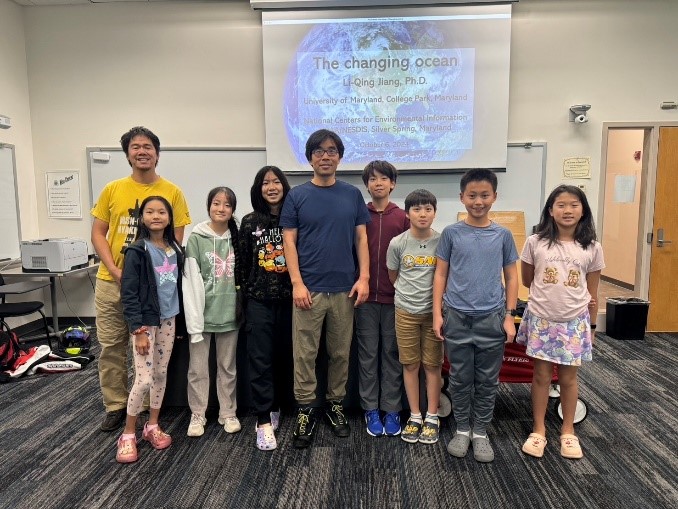
On October 6, 2024, Dr. Liqing Jiang presented “A Changing Ocean Under Climate Change Background” to students at Howard College Community College. The audience, including
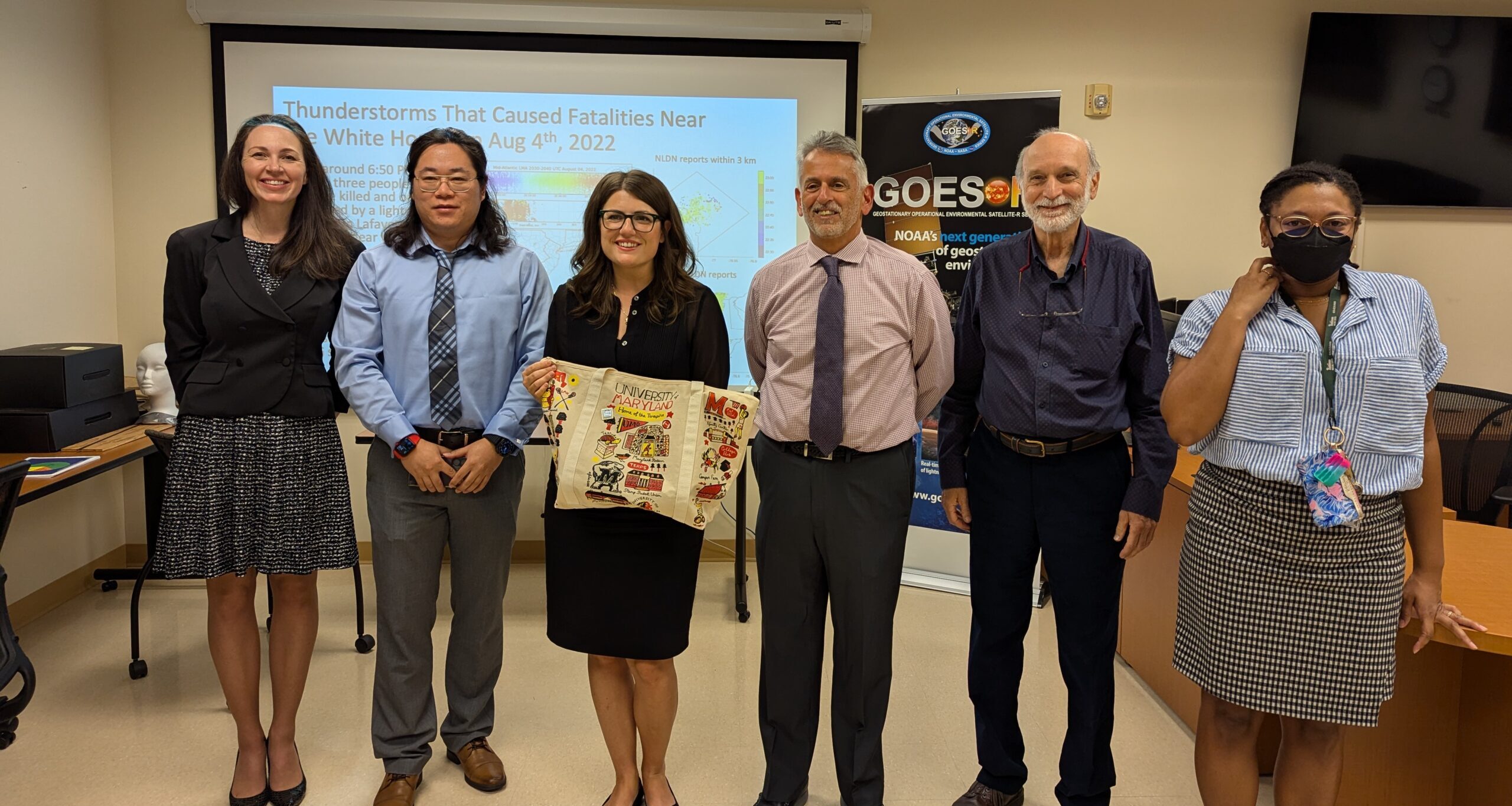
From left to right: Kate Cooney, Guangyang Fang, Sarah Elfreth, Ralph Ferraro, Hugo Berbery, Jennifer Collins On Thursday, September 26, Maryland State Senator Sarah Elfreth

On September 12, Thomas Colligan gave a plenary presentation at the Integrated Carbon Observation System Science Conference in Versailles, France. His presentation, titled “A Near

Welcome to the Spring 2024 semester! We are pleased to announce the return of ESSIC’s Seminar Series. We have a wonderful lineup of senior and junior scientists who are prepared to deliver some compelling presentations about their work and research both in-person and remotely.
Some of our speaker highlights include Dalia Kirschbaum, Director of the Earth Science Division of NASA Goddard Space Flight Center; Neil M. Donahue, Director of Carnegie Mellon’s Steinbrenner Institute as well as professor and AGU Fellow; Claudia Tebaldi, scientist at Pacific Northwest National Laboratory’s Joint Global Change Research Institute and AGU Fellow; Ines Azevedo, associate professor at Stanford; Tracey Holloway, professor at UW–Madison and member of National Academy of Medicine; and Juan Lora, assistant professor at Yale.
Please click “Read more” for our full lineup and to add these events to your calendar now!
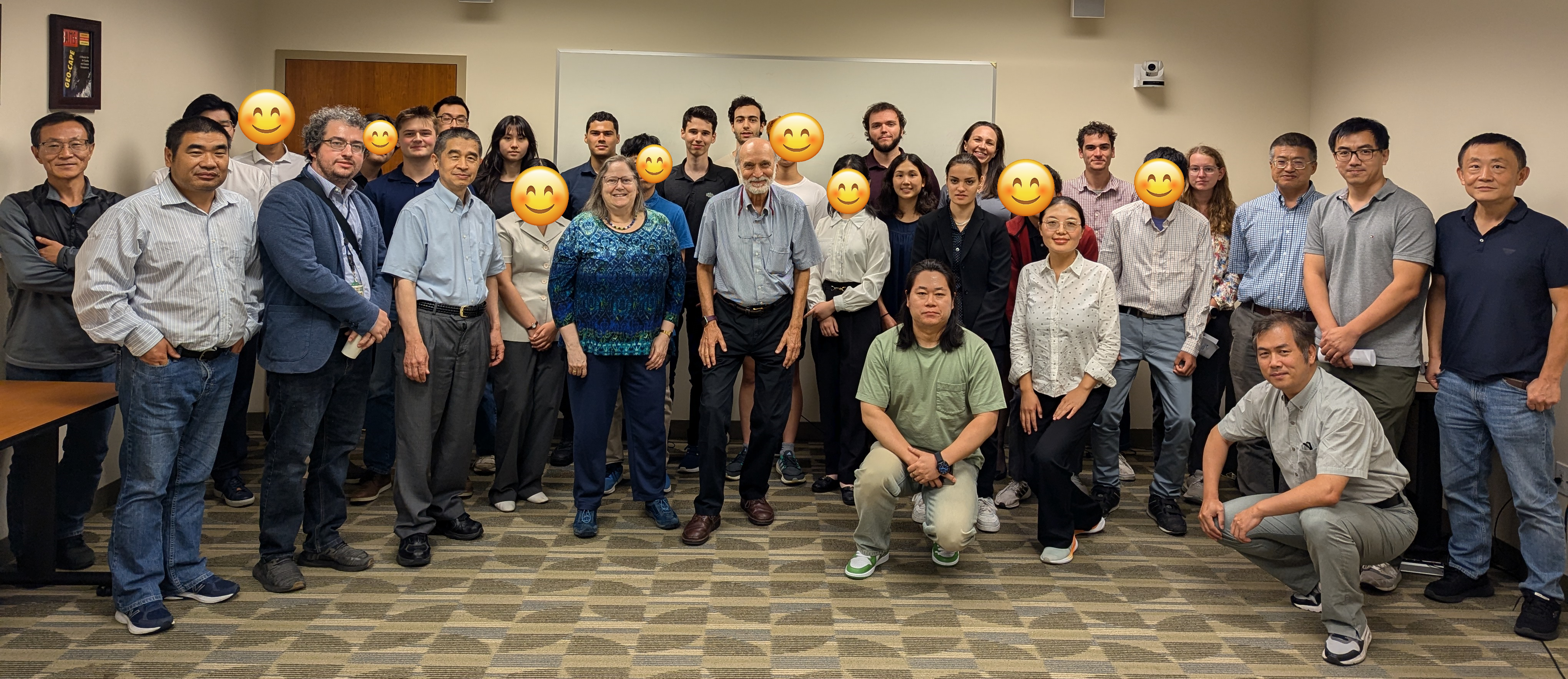
On August 20-23, ESSIC hosted 52 interns both in-person and remotely for the Summer Intern Presentations. The interns, composed of both high school and undergraduate

ESSIC scientist Martin Perrine has been awarded the Robert H. Goddard Honor Award for Science in recognition of his exceptional engineering elevating science missions at
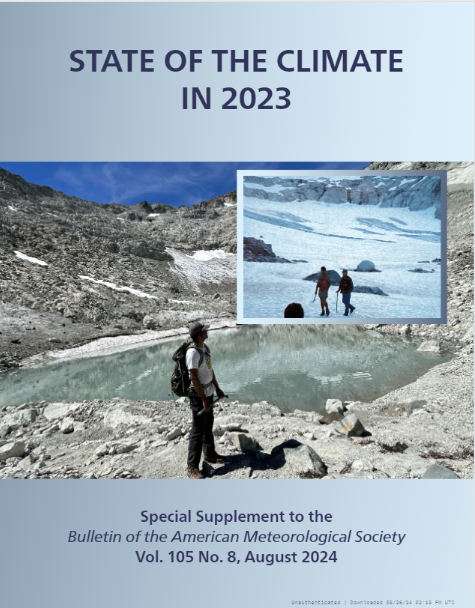
This week, the American Meteorological Society (AMS) released its annual State of the Climate report in 2023. Compiled by NOAA’s National Centers for Environmental Information,